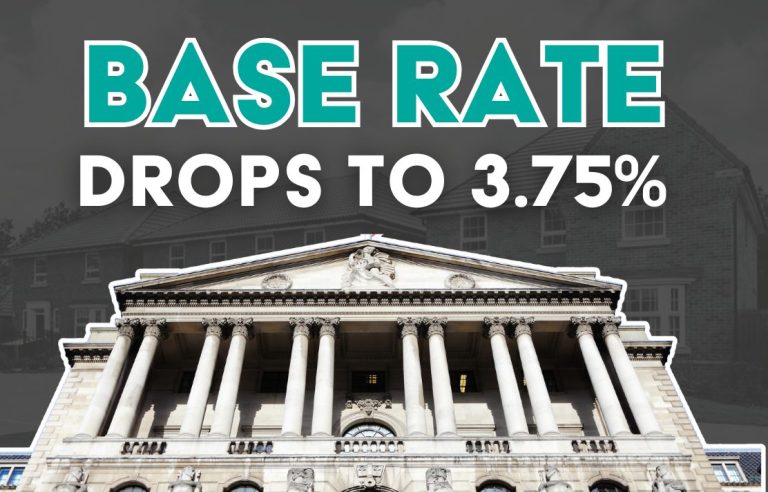When you’re house-hunting and the property of your dreams feels just out of reach, increasing your mortgage affordability can make all the difference. Whether you’re a first-time buyer or looking to move up the ladder, lenders assess how much you can borrow based on your income, outgoings, credit history, and financial commitments.
But don’t worry there are steps you can take to improve your chances of securing a higher mortgage offer. Here are practical, effective tips to help you boost your affordability and get closer to the home you want.
Understand How Lenders Assess Affordability
Before you can improve your mortgage options, it’s important to know how lenders work. They don’t just look at your salary; they assess your overall financial health. This includes:
- Gross income
- Monthly spending, including bills, loans, credit cards, subscriptions, and childcare
- Credit score and repayment history
- Job stability and type of employment
- Outstanding debts
They also “stress test” your finances to ensure you could still make repayments if interest rates go up. So, the more financially secure and responsible you appear, the better your borrowing power.
Boost Your Income (Where Possible)
This may sound obvious, but a higher income increases the amount lenders are willing to let you borrow. Consider:
- Applying for a pay rise if you’ve been in your job for a while
- Taking on extra hours or side work (provided its regular and provable)
- Including your partner’s or co-buyer’s income if you’re buying together
- Using bonuses or commission (some lenders accept these if they’re consistent)
- Every extra pound count, especially if it’s regular, taxable income.
Reduce Your Monthly Outgoings
Lenders look at your monthly spending just as closely as your income. Reducing regular expenses can show you have more disposable income for mortgage repayments.
- Cut back on subscriptions you don’t use (think Netflix, gym, apps)
- Switch utility providers to cheaper deals
- Limit takeaways and dining out in the months before applying
- Create a budget and stick to it, showing you manage money well
- Even small savings can tip the balance in your favour.
Pay Off Debts (Especially Credit Cards and Loans)
Outstanding debts reduce the amount you can borrow because lenders consider your existing financial commitments. The less debt you have, the more room you have to take on a mortgage.
- Clear credit card balances where possible
- Pay off personal loans ahead of applying
- Avoid new borrowing in the run-up to your application
- Don’t max out overdrafts or buy-now-pay-later schemes
If you can’t pay debts off entirely, reducing them will still improve your affordability profile.
Check and Improve Your Credit Score
Your credit history is crucial. A poor credit score could limit how much you can borrow or make getting a mortgage harder full stop.
- Check your credit report through Experian, Equifax or TransUnion
- Correct any errors you spot
- Register on the electoral roll at your current address
- Make all payments on time, even for phone bills and credit cards
- Avoid multiple credit applications in a short period
Lenders want to see that you’re a responsible borrower with a history of managing credit well.
Save a Bigger Deposit
While it doesn’t directly affect income multiples, a larger deposit can sometimes increase the amount a lender is comfortable offering or open up better interest rates. Saving more also reduces the loan-to-value (LTV) ratio, which means less risk for the lender.
- Set up a dedicated savings account for your deposit
- Use schemes like the Lifetime ISA to benefit from government bonuses
- Consider a temporary lifestyle change (e.g. moving in with family) to speed up savings. Even an extra 5% deposit can improve your mortgage prospects.
Choose the Right Lender
Not all mortgage lenders have the same rules. Some are more generous with income multiples (e.g. offering 5x or even 6-7x income for certain applicants), while others are stricter on credit scores or spending habits.
- Work with a mortgage broker who understands the market and can match you to the best lender
- Explain any unusual income, such as freelance or commission work
- Ask about specialist lenders if you’re self-employed or have complex finances
Tailoring your application to the right lender can increase both your chances and your borrowing potential.
Add a Guarantor or Consider Joint Borrowing
If you’re struggling to borrow enough on your own, you might:
- Apply jointly with a partner to combine incomes
- Look into guarantor mortgages, where a family member agrees to cover repayments if you can’t
- Consider family deposit schemes, where parents can contribute savings or equity to support your application
These options come with extra responsibilities, so take proper advice before committing.
Avoid New Credit Before Applying
Tempting as it may be, avoid taking on new financing like car loans, credit cards, or store credit shortly before applying for a mortgage. It adds to your debt-to-income ratio and raises red flags for lenders.
- Hold off on major purchases
- Avoid finance deals, even “interest free” ones
- Don’t open new credit accounts in the 3–6 months before applying
A clean, stable financial picture will serve you better.
Get Your Paperwork Ready
Being well-prepared can help speed up your application and avoid delays that may affect the size of your offer. Make sure you have:
- Payslips and P60s (usually for the last 3–6 months)
- Bank statements
- Proof of any other income
- Details of existing debts or financial commitments
Having all of this ready to go makes you look like a serious, organised borrower.
Improving your mortgage affordability isn’t about shortcuts, it’s about showing lenders that you’re a low-risk, financially responsible applicant who can comfortably manage monthly repayments. By tightening your budget, boosting your income, and improving your credit profile, you’ll put yourself in the strongest possible position to borrow what you need for your ideal home.
At UK Mortgage Centre, we’re here to help you make informed decisions about your mortgage. Our experts can guide you through the process, ensuring you find the best solution tailored to your needs.
Call us on 01925 573328
Email: hello@ukmc.co.uk
Or book your own appointment to speak with one of our friendly advisers.
Let us assist you in making your next move a smooth and successful one.
Disclaimer
UK Mortgage Centre is a trading style of Refresh Mortgage Network Limited. Refresh Mortgage Network Limited is authorised and regulated by the Financial Conduct Authority. FRN – 826982. Registered in England & Wales: 11614569. As a mortgage is secured against your home, it could be repossessed if you do not keep up the mortgage repayments. The Financial Conduct Authority does not regulate some forms of buy-to-let mortgages. The Financial Conduct Authority does not regulate will writing and taxation and trust advice.







